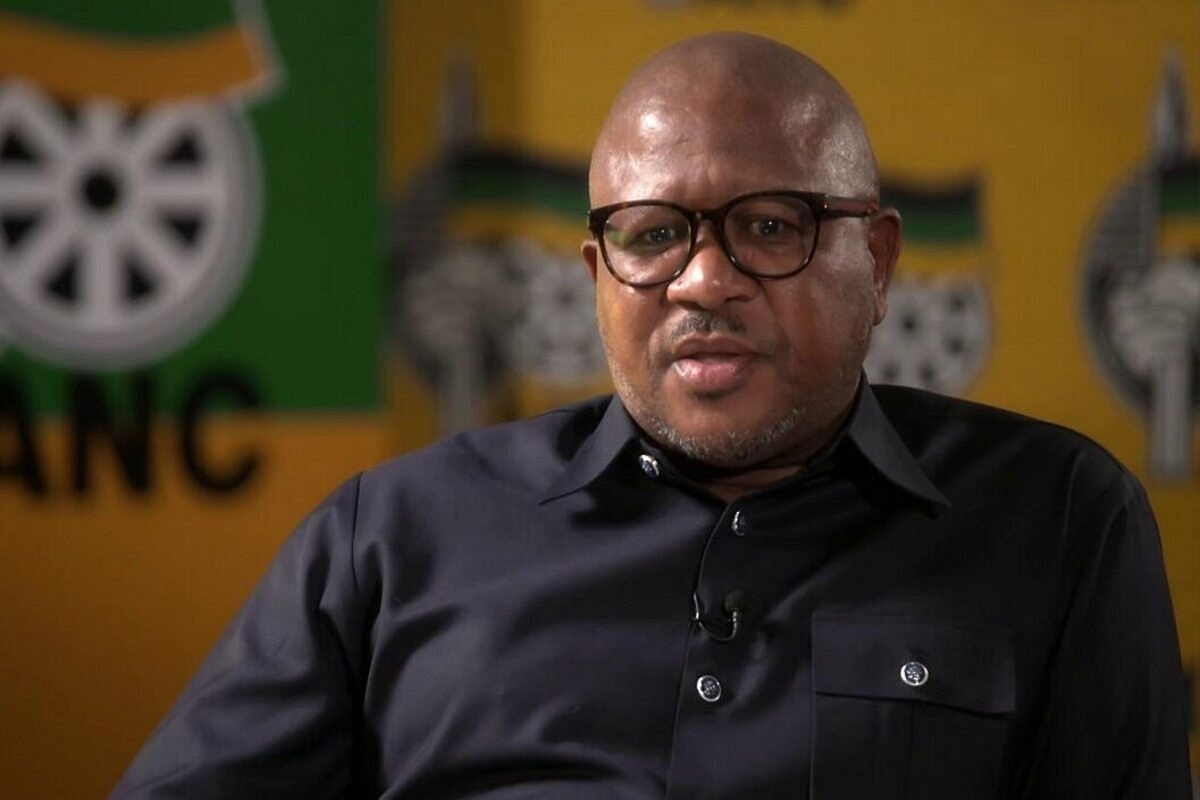News Brief
'How Many Crimes Did UK Commit In Iraq?': South African Leader Exposes BBC's Hypocrisy On Question Of Arresting Putin For 'War Crimes'

Fikile Mbalula, the Secretary-General of the African National Congress.
South African politician Fikile Mbalula, the Secretary-General of the African National Congress (ANC), the party that has governed the country since the overthrow of the racist apartheid system, criticized the Western media's hypocritical stance on the Russia-Ukraine war in an interview with Stephen Sackur of the British Broadcasting Corporation (BBC).
Mbalula, a former cabinet minister, confronted the BBC when the interviewer asked whether South Africa would arrest President Vladimir Putin during his planned visit to the country, as the International Court of Justice had issued a warrant of arrest against the Russian head of state.
"South Africa is a treaty member of the International Criminal Court. If Putin comes here in August as planned, your government will be obliged to arrest him. As a member of the ANC, do you believe your government should, and indeed will, arrest Vladimir Putin?," Sackur asked Mbalula.
"If it were up to the ANC, we would want President Putin to be here, even tomorrow, to come to our country," Mbalula said in the interview, adding, "We will welcome him to come here as part and parcel of BRICS."
"Can a head of state be arrested anywhere?," a visibly agitated Mbalula asked the BBC interviewer.
"How many crimes has your country committed in Iraq? Where are the weapons of mass destruction?" the South African politician asked Sackur, who tried to steer the conversation back to the issue of the Russia-Ukraine war and Putin's "war crimes." "We want peace; that's what is important so that the world can thrive," Mbalula added.
The BBC's stance on the war in Iraq has been a subject of debate and criticism. Some individuals and groups have questioned the BBC's coverage and perceived bias during the build-up to the war and its aftermath.
Critics argue that the BBC, like most other western media outlets, failed to sufficiently challenge the claims about weapons of mass destruction (WMDs) in Iraq, which were later proven to be false.
A study conducted in 2003 found that during the conflict, the BBC quoted sources from the coalition government or military origin more frequently (11 per cent) compared to other main television broadcasters.
In contrast, the BBC was the least likely to quote official Iraqi sources and less inclined than Sky, ITV, or Channel 4 News to use independent and skeptical sources like the Red Cross.
Furthermore, it revealed that the BBC placed less emphasis on Iraqi casualties, with only 22 per cent of its stories mentioning them, while Channel 4 News highlighted casualties in 40 per cent of its reports about Iraqis.
Additionally, the study found that the BBC was less likely to report on Iraqi dissatisfaction with the invasion. These findings have raised questions and criticism about the BBC's coverage of the Iraq war.
Support Swarajya's 50 Ground Reports Project & Sponsor A Story
Every general election Swarajya does a 50 ground reports project.
Aimed only at serious readers and those who appreciate the nuances of political undercurrents, the project provides a sense of India's electoral landscape. As you know, these reports are produced after considerable investment of travel, time and effort on the ground.
This time too we've kicked off the project in style and have covered over 30 constituencies already. If you're someone who appreciates such work and have enjoyed our coverage please consider sponsoring a ground report for just Rs 2999 to Rs 19,999 - it goes a long way in helping us produce more quality reportage.
You can also back this project by becoming a subscriber for as little as Rs 999 - so do click on this links and choose a plan that suits you and back us.
Click below to contribute.
Latest